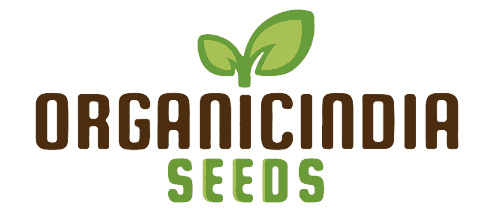Embracing Nature: Discovering the Path from Conventional to Organic Farming
Close your eyes and imagine the rich, earthy aroma of freshly tilled soil, the vibrant colors of sun-kissed fruits and vegetables, and the gentle hum of bees weaving through fields of lush, green crops. Our connection to Mother Earth runs deep, and the choices we make in how we cultivate her gifts can shape the very essence of our lives and the world around us.
As we stand at this crossroads, it's essential to understand the profound differences between organic and conventional farming.Organic farming is a holistic approach rooted in the principles of sustainability, biodiversity, and natural resource management. It emphasizes the use of natural fertilizers, crop rotations, and biological pest control, striving to maintain the health of soils, ecosystems, and people. This method seeks to work in harmony with nature, fostering an environment where crops can thrive without synthetic chemicals.
Conversely, conventional farming often focuses on maximizing yields through the use of chemical fertilizers and pesticides. This method can lead to impressive short-term productivity, but it frequently involves practices that may not align with long-term ecological balance. Understanding these foundational differences helps to appreciate the broader impacts of our agricultural choices.
Environmental Impact
The environmental footprint of farming practices is profound. Organic farming stands out for its beneficial impacts on the ecosystem. By avoiding synthetic inputs, it supports soil health, enhances biodiversity, and minimizes pollution. Organic practices encourage a vibrant web of life, where beneficial insects thrive and soil microorganisms flourish, creating resilient ecosystems.
In contrast, conventional farming can pose significant environmental challenges. The reliance on chemical inputs can lead to soil degradation, water contamination, and loss of biodiversity. These practices can disrupt the natural balance, leading to long-term ecological consequences. Recognizing these impacts underscores the need for more sustainable farming practices.
Health Implications
The differences between organic and conventional farming extend to the quality of the food we consume. Organic products are grown without synthetic pesticides or fertilizers, reducing the risk of chemical residues in food. This method prioritizes nutrient-rich, safe produce that supports human health.
Conversely, conventional farming's dependency on chemical inputs raises concerns about potential health risks. Some studies suggest that organic foods may have higher nutritional content and lower pesticide residues, though research continues to evolve. Choosing organic not only supports personal health but also reflects a commitment to consuming food that is in harmony with nature.

Economic Considerations
Transitioning to organic farming involves navigating unique economic landscapes. While organic farming can present higher initial costs due to certification and labor, it also opens doors to premium markets where consumers are willing to pay more for sustainably produced goods. The demand for organic products continues to grow, presenting promising opportunities for farmers.
Conventional farming, with its focus on maximizing short-term yields, often benefits from economies of scale and lower initial costs. However, the long-term sustainability of these practices is increasingly under scrutiny, with soil health and ecosystem degradation posing future economic risks.
Wrap Up
In weighing the differences between organic and conventional farming, it becomes clear that our choices matter. Organic farming offers a path toward sustainability, promoting ecological balance and human health. Conventional methods, while productive, must evolve to address environmental and health concerns.




اترك تعليقًا
This site is protected by hCaptcha and the hCaptcha Privacy Policy and Terms of Service apply.